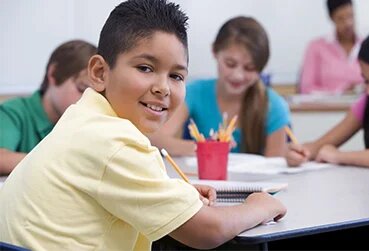Year 7 Book Now

Core purpose of Champs Learning at KS3 is to deliver an engaging and challenging curriculum through outstanding teaching and learning. We aim to make our pupils “GCSE Ready” by the end of Year 9 and to make them confident with conceptual understanding and practice questions.
The curriculum of these subjects have incorporated the structure of all the UK approved boards such as Edexcel, AQA, OCR etc. Each important aspect from a particular board is given an importance in teaching.
Year 7 is a stage where students have just finished their primary school phase and entered the secondary school where there is no handholding by parents or teachers. Sudden sense of responsibility, act of independence and self-learning comes along. New atmosphere, new teachers, new friends, and new rules. Everything must start afresh. This phase is critical for everyone’s study and academic journey. One has to adapt it as fast as possible and master the journey ahead in KS3 -GCSE-A levels.
Champs Learning understand the emotional as well as academic needs of the students at this point and thus our teaching style to the students of year 7 looks after their inclusiveness, involvement and participation.
Session Plan: We understand that we have one hour per subject per week as compared to more than 5 hours per subject at a school. Thus the curriculum is well structured to accommodate all the important topics from each subjects. Curriculum for each subject – Maths, English and Science is spread over 42 weeks.
Books: The session plan is structured with 8 books for each subject and 8 topic tests. Each book is further divided into 4 weeks and every 5th week, we conduct an assessment on that book or topic. All the content including books and tests are designed by faculties at Champs learning. The session plan is made flexible to accommodate extra time for doubt solving and for challenging content for higher set of students.
Assessment: We do conduct assessment after every four weeks and then at the end of the year assessment and conduct a detailed feedback session on these exams.
Subjects: We teach English, Maths and Science for Key stage 3. We also have modern languages as per need of the students. We treat Science as combined science for Year 7 with Physics, Chemistry and Biology are given attention individually on rotation. The aims of KS3 Maths, English and Science at Champs Learning is to develop an interest and understanding of natural phenomena and prepare them for studying these subjects at GCSE and A levels.
Success: Each of our student gets well versed with curriculum, concepts, and road map by the end of year 7. They also achieve the good grades in year 7 subjects to be in the top group in the school.
| Topic |
|---|
| Types of Numbers |
| Multyplying and dividing any number by multiple of 10 |
| Operation on Numbers(Integers) |
| BIDMAS |
| Algebra Simplifying(Collecting like terms, Multiplying and Dividing by letters) |
| Multiplying Brackets |
| Factorising |
| Formulas and Functions |
| Converting Units(Imperial units, Time units and Time table) |
| Ratio(Syplifying, Ratio involving quantities, 1:n or n:1 form) |
| Ratio(scaling up, Part and Whole ratio) |
| Proportional Division |
| 3D Shapes(Introduction) |
| Symmetry |
| Angle(Types, Measuering, Three letter notation) |
| Drawing Angles |
| Data Collection |
| Averages and Range |
| Averages from Table |
| Inerpreting Data |
| Graphs ( Four Quadrants) |
| Graphs (Mid-point of a line) |
| Graphs (Real life graphs) |
| Graphs (Grdaient of graphs represent the rate, Estimating area umder the curve) |
| Triangle Construction |
| Loci and Construction |
| Bearing |
| The four Transformations |
| Box plots |
| Cumulative Frequency |
| Histogram and Frequency Density |
| Stem and Leaf Diagram |
Primary-Secondary Transition module
Prose Study
Short Fiction and Narrative Writing.
Introduction to Shakespeare
Poetry Study
Non-fiction and transactional writing
Written assessment covering one format from:
Article
Guide
Review
Speech
Letters
Report
| Topic Title | Topic Details |
|---|---|
|
Cells
|
|
|
Interdependence Variation
|
|
|
Movement
|
|
Select Your Branch
Course Features
Maths
- Sessions per week : One
- Total no of sessions : 42
- Total no of class tests : 8
- Students per class : 5
English
- Sessions per week : One
- Total no of sessions : 42
- Total no of class tests : 8
- Students per class : 5
Science
- Sessions per week : One
- Total no of sessions : 42
- Total no of class tests : 8
- Students per class : 5

